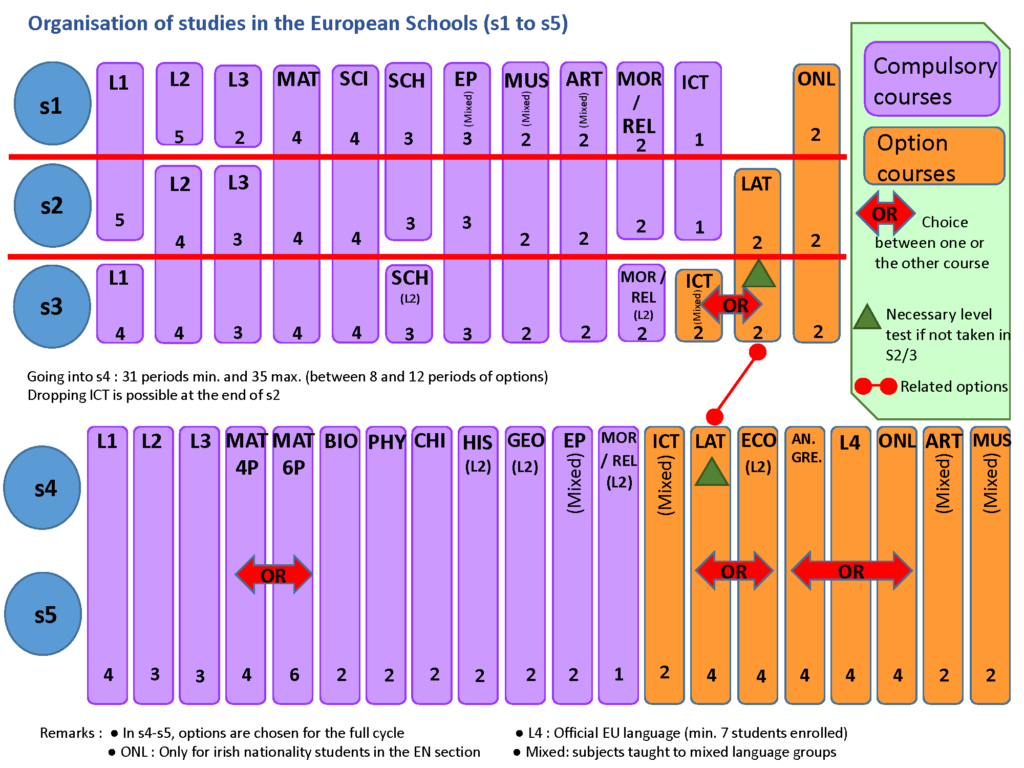
1082 students
SECONDARY
![]()
Studies
The European Schools are official educational establishments controlled jointly by the governments of the Member States of the European Union. In all these countries they are legally regarded as public institutions.
The mission of the European Schools is to provide a multilingual and multicultural education for nursery, primary and secondary level pupils.
![]()
Structure of studies
Pupils normally enter the secondary school in the calendar year in which they turn 11, following the successful completion of the European School’s primary course or an equivalent course duly certified by an officially recognised school.
The seven years of secondary education are organised in the following way: For the first three years, pupils follow a common curriculum, in what is known as the observation cycle. Most subjects are taught in the mother tongue.
In secondary year 1, all pupils begin to study a second foreign language (L3).
In secondary year 2, Latin is offered as an option. In secondary year 3, pupils who chose Latin in year 2 continue to study it. For the other pupils, ICT is offered as an option.
In secondary year 3, all pupils study Human Sciences and Religion or Ethics in their first foreign language (L2).
In years 4 and 5 the compulsory course in Integrated Science is subdivided into Physics, Chemistry and Biology, and pupils may choose between the advanced or the normal course in Mathematics. Other options include Economics, a third foreign language and Ancient Greek.
Years 6 and 7 form a unit which leads to the European Baccalaureate. Although there is a core of compulsory subjects, including L1, L2, Mathematics, Science, Philosophy, Physical Education, History and Geography, pupils have a wide range of further options and may choose to study some subjects for two periods, four periods or at an advanced level.
Pupils are regularly assessed and reports are issued three or four times a year. Assessment is based on both course-work and examinations, although formal examinations do not form part of the observation cycle. Criteria established by the Board of Governors are used to decide whether a pupil may move up to the year above at the end of the school year.
Please, find more information on the website of the OSGES.



